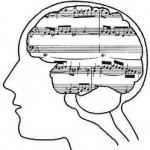Rosemary Scent Boosts Mental Speed & Accuracy
 I am often asked if aromas or scents improve brain function and enhance cognitive performance. Several previous posts on the Next Brain blog have highlighted peppermint, cinnamon, vanilla and citrus. Now, new research shows a link between aroma generated by rosemary oil and improved speed and accuracy in analytic and visual tasks. Rosemary contains an ingredient that impacts our neurochemistry. In the experiment the more of this ingredient that was absorbed the greater the chance of improved cognitive performance.
I am often asked if aromas or scents improve brain function and enhance cognitive performance. Several previous posts on the Next Brain blog have highlighted peppermint, cinnamon, vanilla and citrus. Now, new research shows a link between aroma generated by rosemary oil and improved speed and accuracy in analytic and visual tasks. Rosemary contains an ingredient that impacts our neurochemistry. In the experiment the more of this ingredient that was absorbed the greater the chance of improved cognitive performance.
For more information you can read the research article in the journal of Therapeutic Advances in Psychopharmacology or a another blog post.
Interested to hear from readers that use rosemary and other aromas to boost alertness, focus, processing speed, mood or other cognitive factors.
Categories: Ancient Ways, Mental Focus, Other, Problem Solving Tags:
Can Specific Scents Boost Cognitive Performance?
 Scents and odors have a swift and powerful impact on our brains. They can trigger memories and moods and signal the intentions and feelings of others. But can specific scents be used to improve our brain function and cognitive performance?
Scents and odors have a swift and powerful impact on our brains. They can trigger memories and moods and signal the intentions and feelings of others. But can specific scents be used to improve our brain function and cognitive performance?
There are scientific studies that suggest the scent of vanilla, cinnamon, roses and peppermint impact attention, memory and mental energy.
For example, a recent study in the North American Journal of Psychology pointed out:
“Past research indicates the odors of peppermint and cinnamon (1) enhance motivation, performance, and alertness, (2) decrease fatigue, and (3) serve as central nervous system stimulants.”
I could not find many scientific studies. The impacts they measure are not large or sustained.
There are also some suggested uses of odor in brain training, especially in the approach called neurobics. For example, in the book Keeping Your Brain Alive, the authors suggest:
- Wake up and smell the vanilla: Release the smell of an extract (vanilla, citrus, peppermint or rosemary) just as you awake every morning for a week.
- The scent of music: Sniff specific odors while listening to a song to stimulate novel sensory associations in your brain.
Scent can be delivered from simple cotton balls, plug-in devices, sprays or oils spread by small fans in low-cost electric aromatherapy diffusers. This makes it relatively easy to experiment with scents and cognitive performance. For example, scenting a room while studying, taking sniffs of specific scents just before or after a mental task and so on.
Interested to hear from readers that use scent to boost performance or as part of a brain training routine.
Categories: Memory and Learning, Mental Focus, Other Tags: scents
Strengthen Existing Memories While You Sleep
Learning during sleep is a long sought goal. Exciting new research from Northwestern University reveals that you can but there is a hitch. You can only strengthen existing memories not learn something new.
 They demonstrated the effect for learning to play a new tune. Subjects practiced learning two new tunes on a key board and then took a 90-minute nap. During the nap they were exposed to one tune but not the other. Upon awakening they committed fewer errors playing the tune they heard while sleeping.
They demonstrated the effect for learning to play a new tune. Subjects practiced learning two new tunes on a key board and then took a 90-minute nap. During the nap they were exposed to one tune but not the other. Upon awakening they committed fewer errors playing the tune they heard while sleeping.
The researcher speculate how this might be applied more broadly:
“If you were learning how to speak in a foreign language during the day, for example, and then tried to reactivate those memories during sleep, perhaps you might enhance your learning.”
I am interested to hear from readers that have experimented with learning during sleep. Did you learning any new?
Categories: Memory and Learning, Music and Audio, Training Tags:
Music Training Pumps Up Your Brain
 New research from Northwestern University, Taking Music Seriously, confirms that learning to play a musical instrument is a powerful way to improve general brain function and cognitive performance. To quote:
New research from Northwestern University, Taking Music Seriously, confirms that learning to play a musical instrument is a powerful way to improve general brain function and cognitive performance. To quote:
“Now a data-driven review by Northwestern University researchers that will be published July 20 in Nature Reviews Neuroscience pulls together converging research from the scientific literature linking musical training to learning that spills over to skills including language, speech, memory, attention and even vocal emotion. The science covered comes from labs all over the world, from scientists of varying scientific philosophies, using a wide range of research methods.”
 It seems musical training enhances neuroplasticity and primes the brain for improved performance in a variety of communication and learning tasks. These appear to be life-long and life-wide (outside the context of music) effects.
It seems musical training enhances neuroplasticity and primes the brain for improved performance in a variety of communication and learning tasks. These appear to be life-long and life-wide (outside the context of music) effects.
Interested to hear from readers that use musical training for brain fitness and and cognitive enhancement.
Categories: Memory and Learning, Mental Focus, Music and Audio, Training Tags:
Right Words Boost Infants’ Mental Development
 One question new parents ask is what natural things can I do to stimulate the development of my baby’s brain and make them smarter? There are number of very simple things that have good scientific evidence behind them. For example, new research from Northwestern University confirms that talking to your baby accelerates their cognitive development. Using the right words improves their ability to categorize objects.
One question new parents ask is what natural things can I do to stimulate the development of my baby’s brain and make them smarter? There are number of very simple things that have good scientific evidence behind them. For example, new research from Northwestern University confirms that talking to your baby accelerates their cognitive development. Using the right words improves their ability to categorize objects.
It has long been held that talking to your baby is good for mental development but the Northwestern research found that this is so for the very young, only 2-4 months. The researchers write:
“We suspect that human speech, and perhaps especially infant-directed speech, engenders in young infants a kind of attention to the surrounding objects that promotes categorization,” said Waxman, a co-author and professor of psychology. “We proposed that over time, this general attentional effect would become more refined, as infants begin to cull individual words from fluent speech, to distinguish among individual words and kinds of words, and to map those words to meaning.”
Hearing object-correlated words influences infants’ cognition even in the first few months of life! The key is to clearly use “real words” or ones that properly pick out objects.
It is not clear what the longer term brain-boosting advantages of this are but the ability to categorize is fundamental to how we think.
To get started you may want to check out the talking pointers from the Center for Early Literacy. If you use this technique, or others to boost your baby’s brain development, please share your experience with other readers by leaving a comment.
Categories: Child, Cognitive Development, Lifestyle, Parent Tags:
